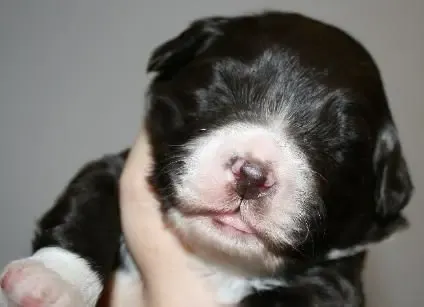Embarking on the journey of dog breeding is a significant commitment that demands careful planning, extensive knowledge, and the invaluable support of experienced veterinary professionals. For aspiring breeders and those seeking to ensure the healthiest outcomes for their beloved canine companions, finding top-tier Dog Reproductive Services Near Me is a critical first step. This comprehensive guide from Dog Care Story will walk you through the essential aspects of canine reproduction, from pre-breeding health screenings to advanced reproductive technologies, ensuring you’re well-equipped to make informed decisions. We’ll delve into what to look for in a specialized veterinary clinic and how their expertise, akin to that of board-certified specialists like Dr. O’Connor in canine and feline reproduction, can be the cornerstone of your breeding success.
Understanding Canine Reproductive Services: What to Expect
Professional veterinary guidance is paramount when considering dog breeding. A specialized veterinary team can provide the medical expertise and support needed to optimize conception rates, ensure healthy pregnancies, and safeguard the well-being of both the dam (female dog) and her future litter. Their services typically begin long before breeding even occurs, focusing on preventative care and thorough evaluations.
Initial Consultations and Essential Requirements
Before any breeding plans move forward, a comprehensive consultation with a veterinary expert is crucial. This initial meeting allows your vet to screen for potential health issues and help you develop a tailored breeding plan. When seeking veterinary reproductive specialists near me, be prepared for a set of standard requirements designed to ensure responsible breeding practices and the health of all dogs involved. These often include:
- Pre-breeding Examination: A thorough physical exam performed by your chosen veterinarian is essential to assess the overall health of both the prospective dam and stud dog, identifying any underlying conditions that could impact breeding success or the health of offspring.
- Complete Medical Records: If your reproductive veterinarian is not your primary care provider, ensure all medical records from your regular vet are submitted in advance. This provides a full health history, allowing the reproductive specialist to have a complete picture of your dog’s health.
- Heartworm and Tick-Borne Disease Testing: Both the dam and stud dog must have a recent (within 12 months) negative heartworm and tick-borne disease test (such as Flex4, SNAP, or 4DX). These results are critical for preventing transmission to offspring and ensuring parental health.
- Rabies Vaccination: Up-to-date rabies vaccination is a legal and health requirement. A copy of the official rabies certificate (not just a receipt or reminder) must be provided.
- Brucellosis Testing: A negative Brucellosis test within 30 days of breeding is mandatory for all breeding services. This bacterial infection can cause infertility and spontaneous abortions and is transmissible to humans, highlighting the importance of this screening.
- Registry Certificate: For purebred dogs, a copy of the registry certificate (e.g., AKC registration) must be supplied to confirm lineage and breed standards.
- Age Requirements: Most reputable clinics require the bitch and stud dog to be a minimum of 18 months (1.5 years) old for ovulation timing and assisted breeding services. This ensures physical and sexual maturity.
Key Recommendations for Responsible Dog Breeding
Beyond the mandatory requirements, experienced veterinary reproductive specialists often provide recommendations to further enhance the health and success of your breeding program. These guidelines underscore a commitment to ethical and responsible breeding.
- Up-to-Date Vaccinations: In addition to rabies, it’s recommended that both the dam and stud are current on distemper vaccination (DA2P) and other preventative vaccines (such as Lyme, Lepto, Bordetella) based on their lifestyle and exposure risks.
- Parasite Prevention: Maintaining current heartworm and flea/tick prevention for both dogs is crucial for their health and to prevent any parasitic transfer to puppies.
- Permanent Identification: Microchipping offers permanent identification, ensuring your dog can always be returned to you if lost, and is often a prerequisite for official registrations.
- Breed-Specific Health Testing: Researching and performing breed-specific health tests is vital to prevent passing on genetic conditions. Reputable organizations like the Orthopedic Foundation of America (OFA), the American Kennel Club (AKC), and the United Kennel Club (UKC) offer extensive resources on breed standards and common health concerns. Sharing these results with your veterinary reproductive specialist ensures a comprehensive health profile. When looking for comprehensive care, some breeders also consider a holistic dog vet near me for a broader approach to health and wellness.
Comprehensive Dog Reproductive Services Offered
Specialized veterinary clinics offer a wide array of services designed to support every stage of the reproductive process, from initial health evaluations to postnatal care for puppies. These services are invaluable for maximizing breeding success and ensuring optimal health outcomes.
Health Clearances and Diagnostic Services
Beyond the initial screening, specialized services can provide deeper insights into your dog’s health and genetic suitability for breeding:
- OFA Clearances: This includes hip and elbow x-rays with sedation, patella certification, thyroid testing, dentition evaluations, and cardiac auscultation. These screenings identify common orthopedic and genetic issues.
- Genetic Disease Testing: Blood draws can be performed to test for specific genetic diseases known to affect certain breeds, allowing breeders to make informed decisions and prevent passing on inherited conditions.
- Complete Reproductive Examination: A thorough examination includes a complete physical assessment, followed by a vaginal examination to check for any physical obstructions like strictures, vaginal bands, or hyperplasia that could impede breeding or whelping. Nutritional discussions are also key, advising on beneficial supplements and identifying potentially harmful foods during pregnancy and lactation.
Advanced Reproductive Technologies
For optimal breeding timing and assistance, specialized clinics provide advanced techniques:
- Ovulation Timing: This precise service uses in-house or reference lab progesterone testing to determine the ideal breeding window, significantly increasing the chances of conception.
- Artificial Insemination (AI): AI offers several methods to assist breeding, including vaginal, transcervical, and surgical insemination, allowing for breeding when natural mating is difficult or impossible.
Pregnancy Management and Neonatal Care
Once conception occurs, ongoing veterinary support is crucial for a healthy pregnancy and successful birth:
- Pregnancy Evaluation: This includes ultrasound diagnosis for early confirmation and gestational aging, followed by X-rays near term to accurately count litter size, which is critical for whelping preparation.
- Infertility Diagnosis: If breeding attempts are unsuccessful, a specialist can perform diagnostics to identify causes of infertility in either the dam or stud.
- Semen Services: For stud dogs, semen evaluation, fresh chilled semen shipments for remote breeding, and semen freezing (cryopreservation with long-term storage) through facilities like Zoetis are available.
- Neonatal and Pediatric Care: Specialized care for newborn puppies ensures they get the best start in life, addressing common issues and providing essential early veterinary attention. Finding experienced veterinary reproductive specialists near me who also offer this level of post-natal care is a huge advantage.
Understanding Cesarean Sections (C-sections) for Dogs
Cesarean sections (C-sections) are sometimes necessary to safely deliver puppies, particularly in breeds prone to birthing difficulties.
Elective C-sections
Elective C-sections are planned in advance, typically scheduled around 63 days from ovulation, based on the dam’s progesterone levels. However, clinics generally have strict criteria for performing elective C-sections: they are usually reserved for existing clients who have had their pre-breeding examination, ovulation timing, pregnancy confirmation via ultrasound, and litter size confirmed by X-ray all performed at that specific veterinary hospital. This policy ensures that the veterinary team has a complete history and is confident in the timing and necessity of the procedure.
Emergency C-sections
While clinics strive to accommodate all reproductive clients, it’s important to note that staff size and scheduling limitations can impact their ability to provide emergency care, including unplanned C-sections due to whelping difficulties. It’s crucial for breeders to have a clear understanding of their chosen clinic’s emergency protocols and limitations when looking for a dog breeding vet near me. Being prepared for potential emergencies is part of responsible breeding.
Finding Quality Dog Reproductive Services Near Me
When searching for “dog reproductive services near me,” there are several key factors to consider to ensure you select a clinic that meets your needs and standards.
- Expertise and Certifications: Look for veterinarians who are board-certified in theriogenology (animal reproduction) or who have extensive experience and a dedicated focus on reproductive medicine. Their expertise is invaluable.
- Comprehensive Services: A clinic that offers a full spectrum of services, from initial health clearances and ovulation timing to artificial insemination, pregnancy management, and neonatal care, can provide seamless support throughout the entire breeding process.
- State-of-the-Art Equipment: Access to modern diagnostic tools like digital ultrasound and X-ray imaging ensures accurate assessments and timely interventions.
- Client Communication: A good clinic will prioritize clear and consistent communication, keeping you informed at every step and answering all your questions.
- Recommendations: Seek referrals from trusted dog breeders, breed clubs, or your primary care veterinarian. Online reviews and testimonials can also offer insights into client experiences. When considering a comprehensive veterinary facility, you might also find that they offer diverse services, potentially including specific treatments or even information on topics like cat grooming prices alongside their reproductive specialties.
Responsible dog breeding is a complex but rewarding endeavor. By partnering with a dedicated and expert veterinary team, you can significantly increase the likelihood of healthy pregnancies and the birth of robust, well-cared-for puppies. Take the time to research and find the best dog reproductive services near me to support your exciting breeding plans.
References
- Birthing Puppies by Wendy Brooks DVM, DABVP – https://veterinarypartner.vin.com/default.aspx?pid=19239&id=4951546
- Dog Whelping: The Complete Guide: By Dr. Greer and the Revival Education Team – https://www.revivalanimal.com/learning-center/dog-whelping-the-complete-guiderevival-animal-health
- Birthing Puppies: By Wendy Brooks, DVM, DABVP – https://veterinarypartner.vin.com/default.aspx?pid=19239&id=4951546
- Pregnant Dog Care: by Wendy Brooks, DVM, DABVP – https://veterinarypartner.vin.com/default.aspx?pid=19239&id=4951916
- American Kennel Club – https://www.akc.org/register/information/artificialinsemination/
- American Kennel Club – https://www.akc.org/expert-advice/dog-breeding/deciding-bestmethod-artificial-insemination/
- Estrus Cycles in Dogs: Breeding, Care and Wellness: by Cheryl Yuill, DVM, MSc, CVH – https://vcahospitals.com/know-your-pet/estrus-cycles-in-dogs
- American Kennel Club – https://www.akc.org/breeder-programs/breeder-education/akcsguide-responsible-dog-breeding/
- The Important Role of Breeders in Getting Puppies Off to a Healthy Start: https://www.akc.org/expert-advice/dog-breeding/important-role-breeders-gettingpuppies-off-healthy-start/
- How long should puppies stay with their mother? : https://www.vet.cornell.edu/departments-centers-and-institutes/riney-canine-healthcenter/health-info/how-long-should-puppies-stay-their-mother
 Golden Retriever puppies nursing from their mother
Golden Retriever puppies nursing from their mother Veterinary professional gently examining a healthy newborn puppy
Veterinary professional gently examining a healthy newborn puppy
